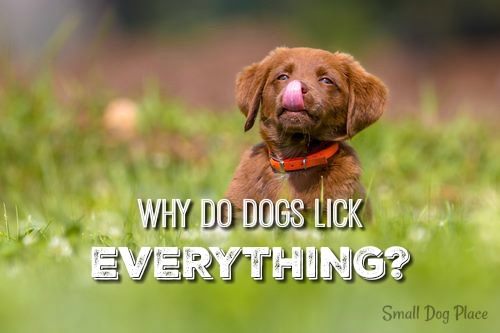- Small Dog Place Home
- Behavior Problems
- Why do Dogs Lick?
Why Do Dogs Lick?
By Rose Bird |Last Updated 03-22-2024
All dogs are a little crazy in their own way, but licking everything in sight is actually more common than you might think. Carpets, toys, us, themselves – nothing is too dirty or too weird for their appetite, but should you be concerned?
Well, that depends on a few different things, and to get the answer you need to understand why they’re doing it. That’s why we put together this little guide to at least alleviate some worries, and at most, hopefully, save a few dogs out there.
Why Do Dogs Lick Themselves?
There are some very innocent reasons why your dog might be licking themselves, but also some reasons that could be of real concern for owners.
The difficulty can be in figuring out their motives;
your dog might be able to roll over on command, but
we doubt they’re capable of the one on one communication this conversation
would require (but, please, prove us wrong).
Grooming and Bathing
The most common reason for a dog licking themselves is also the most innocent, and the chances are that your pet is just having a little clean. We wash every day, we brush our teeth every day, we change our clothes every day (lazy weekends aside) but dogs aren’t wired that same way.
For dogs with normal skin, we don’t need to wash them much more than once a month, while their teeth usually are taken care of by the odd dental stick, and their equivalent of putting a new top on is slowly malting their fur.
Their tongue is the closest thing they have to a bar of soap that they can use by themselves, so if they’re feeling dirty, then this is what they’ll resort to.
Healing
This leads into another reason why dogs may lick themselves -- the tongue is a built in first aid kit. When you see a dog continually licking one place on their body, it could be that they have an injury, cut or scratch. As we will learn in a moment, a dog's saliva has some therapeutic properties that may help to heal their own wounds.
Licking their wounds help keep the area clean and the physical stimulation of the tongue will stimulate blood flow to the area which will bring those blood components that speed healing.
Anxiety, Calming, Compulsions, Bordom
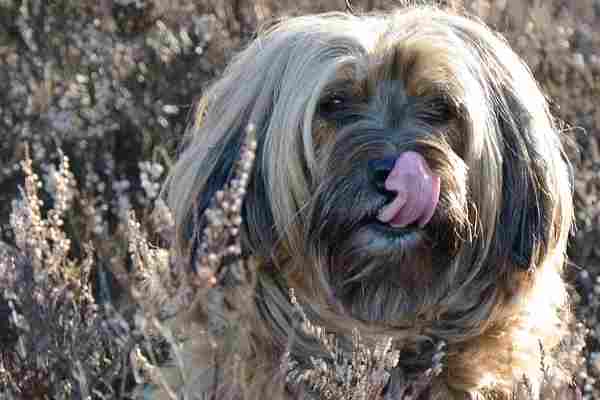 Dogs may lick due to anxiety, compulsive behaviors, as a way to cure boredom, or as a way to calm themselves
Dogs may lick due to anxiety, compulsive behaviors, as a way to cure boredom, or as a way to calm themselvesHowever, anxiety is also another known trigger for some dogs, just like how some people play with their hair or have specific twitches for when they’re nervous. This, however, can make things a little more difficult. If a dog is dirty, then you can easily connect that to them licking themselves.
However, anxiety could be linked to anything and deduce what the trigger is so you can try and alleviate the dog’s unease will require a bit of work from you. For more on this, see the “What can you do?” section below.
If dogs lick enough, the behavior becomes habit forming and may not be easy to change, especially if the dog is bored.
Why Does My Puppy Lick His Lips?
If you ever witness a puppy licking his lips, it is likely he's feeling anxious and licking is a way to calm himself down. This is a normal behavior and doesn't mean that the puppy is going to grow up with anxieties or compulsive behaviors.
My Dog is Licking his Paws
There could be a number of reasons why paws are often the area dogs lick the most. Environmental allergies is one of the most common reasons dogs lick their paws or paw pads. They may have walked on a substance (allergen) that is causing irritation. Grass, irritating floor cleaner, poisonous plants or heavily sprayed garden areas are common irritants.
Pain is another reason why dogs will lick their paws. Arthritis is common in older dogs and licking seems to soothe the pain to some extent.
Why Do Dogs Lick Other Dogs
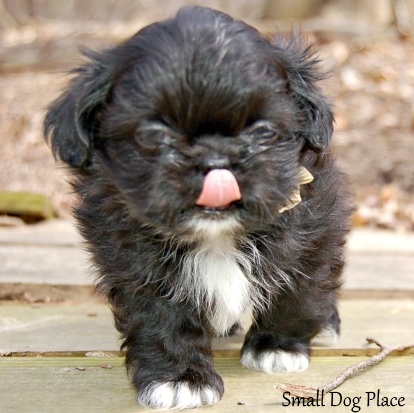
Maternal Behavior / Submissive Behavior
If you have more than one dog, you may notice that they will lick each other from time to time. This could be a sign of affection or it could indicate submission.
During the first weeks of life, the mother dog will lick her young, to keep them clean and also to stimulate urination and defecation. As the puppies get older, you can observe puppies licking each other and also the faces of older, more dominant dogs. The dog doing the licking is showing respect and acting in a submissive way.
Why Do Dogs Lick Objects?
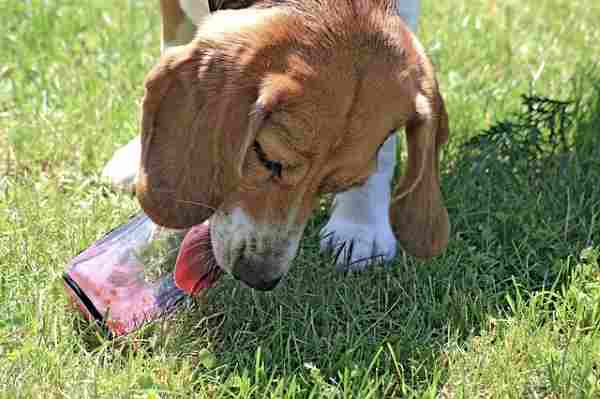 Why do Dogs Lick Objects?
Why do Dogs Lick Objects?Puppies explore their world with all of the senses, especially the sense of taste. Taste is one of the best ways for puppies to learn. Once the puppy matures, if he continues to lick objects, the floor, a window or anything else, it is like that he tastes some that has been spilt or he just likes the texture on his tongue.
Why Do Dogs Lick Humans?
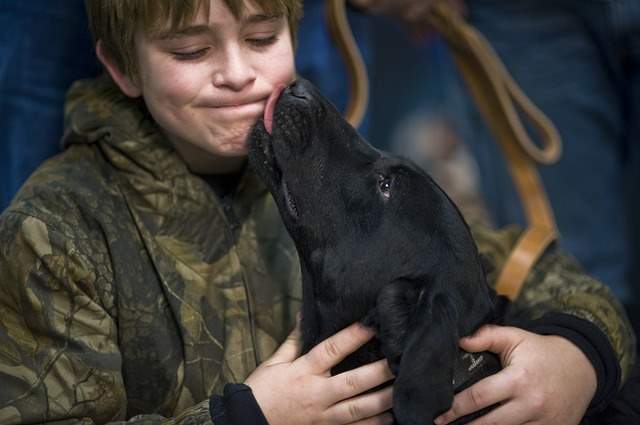 Why do Dogs Lick People?
Why do Dogs Lick People?One reason your dog is licking you all the time could actually be entirely complimentary, as sometimes their reasoning is purely sensory and they just think you taste nice!
Humans are Tasty
You’ll probably find that they lick you the most after a
shower or you’ve applied aftershave because they think you smell nice, and
that’s all a dog needs sometimes. While we wouldn’t recommend a dog drank a
bowl full of perfume, we also wouldn’t worry if the dog licked a bit of it that
had been sprayed on you, so no need to enter panic mode if this happens.
Signs of Affection
Licking humans is also a sign of affection, like a less civilised version of the kiss we might give to our loved ones. This is born from their mothers licking them when they were young, which they connect with affection and are in a way trained to think that this is a way they show their love – because that’s how they were shown love when they were younger.
Why Do Dogs Lick Themselves?
- To Clean Themselves (Grooming themselves)
- Anxiety-Compulsive Behavior
- As a calming mechanism
- To Aid in Healing a Wound
Why Do Dogs Lick Humans?
- We taste good
- A sign of affection
- Showing Submission
Should We Let Our Dogs Lick Us?
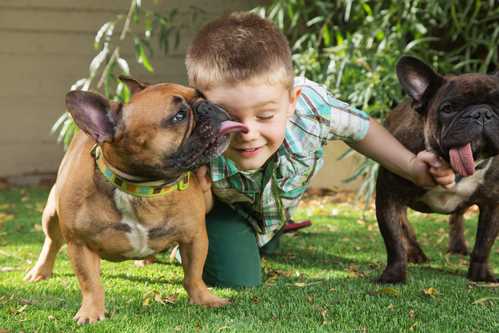 Why do dogs lick people? Should I allow this behavior?
Why do dogs lick people? Should I allow this behavior?You might know why they lick you then, but that doesn’t answer another frequently asked question: is it safe to let a dog lick you?
While every dog might not be harbouring rabies, people still have concerns – and truthfully, these concerns are at times valid. Speaking on the subject, Dr. Neilanjan Nandi, an assistant professor of medicine at Drexel University College of Medicine in Philadelphia, said that their mouths can contain “an enormous oral microbiome of bacteria, viruses and yeast”.
While there are some beneficial elements to their saliva, such as bacteria that can help heal and clean their wounds, Dr. Nandi believes that “There are some organisms unique to dogs that we were simply not meant to tolerate or combat.”
These are called zoonotic bacteria, which means they can be passed from animals to human and diseases that the dog might show no signs of carrying could seriously harm a human.
Does this all mean that we should stop them from licking us then? Well, it’s up to you if you want to take the risk; although that makes it sound a little too much like skydiving or bouldering.
The fact is that, while it indeed is possible to contract a disease from your dog licking your face, it isn’t very likely. If you keep your mouth shut and eyes closed when they go in for a kiss, the only thing you should really be worried about is their breath.
What Can You Do?
Puppy Rearing and Socialization
The first 16 weeks of a dog’s life are the most important as this is when they develop their behaviour patterns and social skills. This is why people are encouraged to introduce their dog to plenty of humans and other animals between their 7 and 16 weeks. At this time, they can best learn to interact with other beings to help with social difficulties further down the road.
Failure to instill this confidence could result in anxiety that eventually manifests itself as a licking habit. If it’s too late and the dog is obsessively licking things later into its life, then merely conditioning them to stop doing it (physically stopping them, telling them to stop, etc.) as soon as they start licking something can be an effective treatment.
However, dogs
can be particularly stubborn and different measures might need to be taken. After all, habits are hard to break
Treat the Anxiety
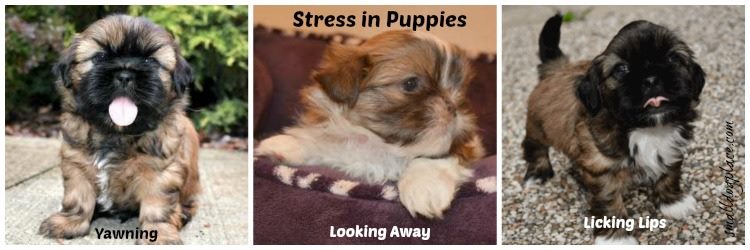
Anxiety in dogs is common. It is also recommended that you figure out if anything is triggering the behaviour and then using this information to help counteract it. To do this, we recommend taking note of every time they lick anything obsessively. Jot down what happened before the licking started that could have caused it.
For example, if you take enough notes, you might discover a correlation between the dog licking something and the phone ringing.
From this, you could deduct that the ring tone makes the dog uncomfortable and that something as simple as changing the sound played could stop the licking.
Another potential explanation could be that they are seeking attention, so an easy (and fun) fix could be to spend more time with your pet and give it the attention it so desires. If licking occurs when you are away from home, it could be a symptom of separation anxiety.
Medical Answers
If all these previous ideas are ineffective, then you can turn to pharmacologic measures.
Drugs that work on the serotonergic system are particularly effective at treating anxiety and compulsive disorders in both canines and humans, and one drug in particular that professionals recommend is clomipramine. This is a tricyclic antidepressant with serotonergic properties, which makes it ideal for treating this condition.
The recommended dosage for dogs is 1 to 3 mg/kg given orally twice daily, and possible side effects include sedation and anorexia, but further research should be held to make sure it is suitable for your dog.
Up-To-Date Health Care
Last but not least, you should also make sure your dogs are up to date with all of their vaccinations. While vaccines aren’t a 100% effective defence against all diseases and bacteria, they can drastically cut down on the number of health problems that your dog – and as a result, you – are susceptible to.
Frequently Asked Questions About Why Do Dogs Lick
If this is anxiety related, how
can I relax my dog when I can’t figure out the trigger or what is causing the allergy?
Triggers can be difficult to specify so focusing on making your dog happier in general instead of fixing that specific problem is a great way to tackle this.
Different dogs like different things though, so as the owner there might be some particular things you can do to get that tail wagging faster than anything else.
For more general advice, almost every dog we have met loves a trip to the beach or woods and if rubbing their head while saying “Who’s a good boy/girl!” gets them freaking out then do that too.
Something as simple as new toys can do the job if you want something to cheer them up while you’re not there.
Should I let my dog lick his wound?
There are specific
proteins in a dog’s saliva that can help wounds heal, so the licking of wounds
isn’t particularly worrying. However, dogs can sometimes disturb an injury and prevent it from healing if they
touch it too much and if you think they are potentially doing this, then a cone
might be ideal.
Do female dogs lick themselves more than male dogs?
No evidence supports the idea that one gender of dog licks themselves more than the other. Instead, it is more down to each individual dog and the unique traits, regardless of their gender.
My dog keeps licking it’s paws, should I be worried?
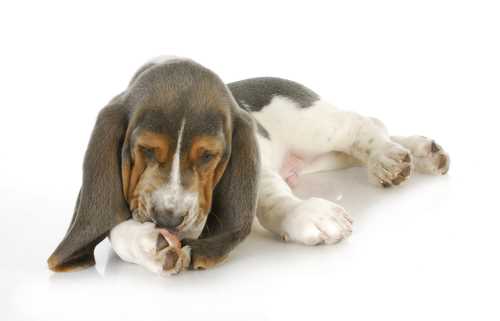 Why do dogs lick their paws?
Why do dogs lick their paws?While general licking has been addressed above, the licking of specifically the paws actually suggests that your dog might be suffering from some form of allergies. There are common allergies that dogs share, like dust and grass, but these reactions can often be attributed to changes made at home, like a new food they’ve been given or a new property they’ve moved in to.
Pinpointing the allergy trigger can be
difficult, but fortunately, vets can
often administer allergy tests which will help confirm any suspicions, and when
you have professional confirmation, antihistamines or a cortisone injection can
be prescribed to combat the allergies.
General injuries like cuts and splinters could also be responsible for discomfort, but this should become evident after an up-close inspection.
Conclusion
Hopefully, this article has helped clear up any of the myths around the licking habits of dogs and ideally relieved a bit of stress, or importantly educated those who own dogs with real problems that need attention. For more information on the breed of your dog, you can even visit our dog breed list to see their individual personality ratings – maybe your pet has more in common with their breed than you’d think!
Why Do Dogs Lick Guest Post
Rose Bird, guest author of Why Do Dogs Lick, is from the Kennel Store, https://www.kennelstore.co.uk/ The UK's leading dog kennel superstore and have been providing homes with dog runs, cabins, cages and more for years.
About Janice (author and voice behind this site)
Having lived with dogs and cats most of her life, Janice served as a veterinary technician for ten years in Maryland and twelve years as a Shih Tzu dog breeder in Ohio.
Her education includes undergraduate degrees in Psychology with a minor in biology, Early Childhood Education, and Nursing, and a master's in Mental Health Counseling.
She is a lifelong learner, a dog lover, and passionate about the welfare of animals. Her favorite breed for over 50 years has been the Shih Tzu, but she has also lived with Poodles, Maltese, Yorkshire Terriers, Beagles, English Bulldogs, Carin Terriers, and a Cocker Spaniel.
When not writing, reading, and researching dog-related topics, she likes to spend time with her eight Shih Tzu dogs, husband, and family, as well as knitting and crocheting. She is also the voice behind Miracle Shih Tzu and Smart-Knit-Crocheting
Does This Article Deserve Your Thumbs Up?
We always appreciate your support and encouragement. Your thumbs up means so much to us. Please like this article.
If you find this page or any page on Small Dog Place Helpful, or useful in anyway, I'd love it if you would click the small heart found on the bottom right of each page.
You can also share or bookmark this page -- just click on the:

Free Monthly Newsletter
Sign Up for Our Free Newsletter and get our Free Gift to You.
my E-book, The Top 10 Mistakes People Make When Choosing a Dog (and how to avoid them)
